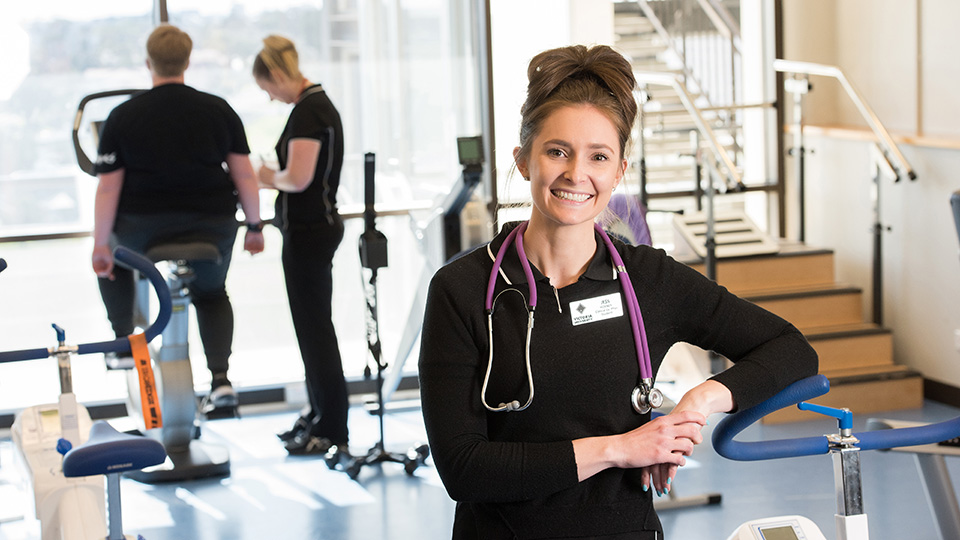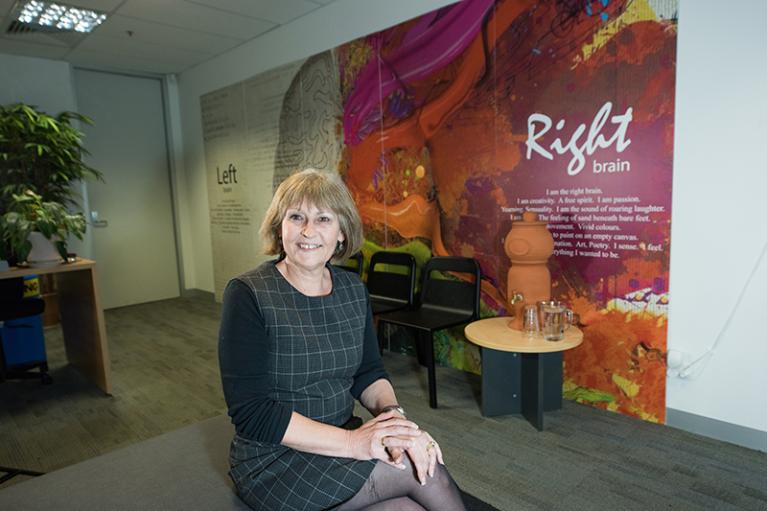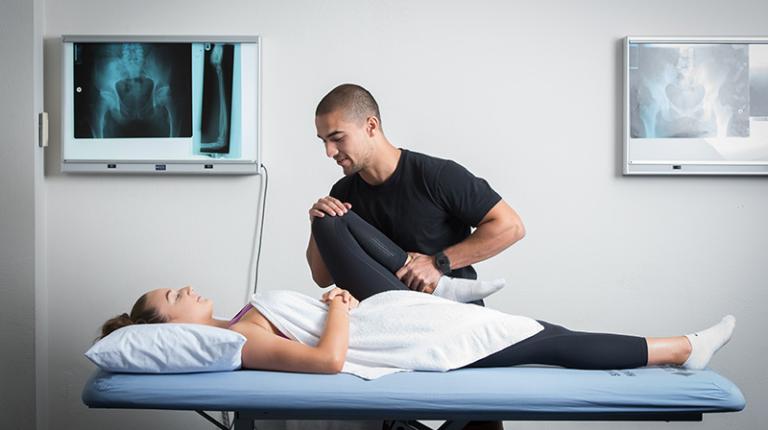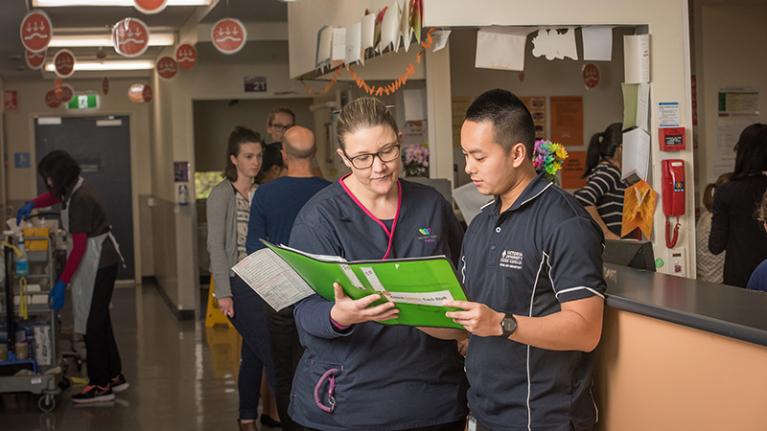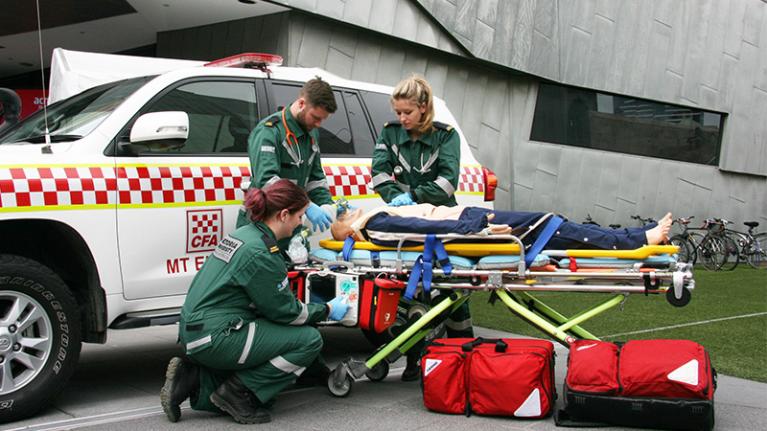Clinics & simulation-based learning
Clinical and simulation-based learning is an important part of all of our health and biomedicine courses. It is an accreditation requirement for dermal therapy, midwifery, nursing, osteopathy and paramedicine.
We have on-campus clinics where Psychology, Osteopathy, and Dermal Science students gain professional experience by providing services to the public.
Simulation-based learning
Simulation-based learning blends theory with practice. It provides students with experience of simulated patients and technologically complex manikins that reproduce important aspects of patient physiology. Students have repeated opportunities to learn, practice and receive specific and immediate feedback to help them develop their expertise.
The technology records student accomplishments and allows them to reflect on their performance and debriefing allows students to actively reflect on their actions, motivations, understanding of concepts and review the impact of their simulated interactions.
Simulation facilitators are supported by specialist staff who work with discipline-specific experts to develop scenarios, validate scenarios, train for debriefing, prepare simulated participants and develop contextually-detailed settings within the simulation environment.
Inter-professional education and practice is a key driver of 21st Century healthcare practice and provides students from two or more professions the opportunity to learn together during part of their professional education
SIMULATION-BASED LEARNING
Simulation-based learning blends theory with practice. It provides students with experience of simulated patients and technologically complex manikins that reproduce important aspects of patient physiology. Students have repeated opportunities to learn, practice and receive specific and immediate feedback to help them develop their expertise.
The technology records student accomplishments and allows them to reflect on their performance and debriefing allows students to actively reflect on their actions, motivations, understanding of concepts and review the impact of their simulated interactions.
Simulation facilitators are supported by specialist staff who work with discipline-specific experts to develop scenarios, validate scenarios, train for debriefing, prepare simulated participants and develop contextually-detailed settings within the simulation environment.
Inter-professional education and practice is a key driver of 21st Century healthcare practice and provides students from two or more professions the opportunity to learn together during part of their professional education.
Clinics
Psychology clinic
Students in the Master of Applied Psychology (Clinical Psychology), Master of Applied Psychology (Community Psychology) and Master of Professional Psychology treat clients in the Psychology Clinic under the supervision of registered psychologists.
All students are registered Provisional Psychologists and have completed four years of undergraduate study in psychology.
Osteopathy clinic
Senior students in the Master of Health Science (Osteopathy) provide treat visitors at the Osteopathy clinic, under supervision of qualified and registered osteopaths.
All students are undertaking their clinical practice and have completed extensive study of Osteopathy in the classroom and laboratory.
Dermal clinic
Treatments at the Dermal clinic are performed by trained students in the Bachelor of Dermal Sciences, under the supervision of qualified dermal clinicians.
Nursing clinical model
Our nursing clinical model is an innovative program for nursing students designed to enhance clinical learning experience, and offers students opportunities to:
- experience the true nature and challenges of contemporary nursing practice
- work alongside expert clinicians
- enjoy positive, and supportive clinical learning environments across the spectrum of nursing specialities.
Students are required to complete 100% of their clinical learning hours to be eligible for a certificate of completion and registration.
With state-of-the-art technology, our nursing and paramedic laboratory facilities are designed to simulate a hospital environment. Our nursing simulation labs enable video recording from fixed cameras with live video streaming capabilities for greater student participation in learning.
VU Sunshine Clinical School
The VU Sunshine Clinical School is a purpose-built teaching facility developed for all third year Nursing students and all third and fourth year Nursing and Midwifery dual degree students.
This state-of-the-art site includes classroom teaching spaces, nursing and midwifery teaching laboratories, specialist simulation spaces and a Self-Directed Learning space.
Paramedic clinical placement
Paramedic clinical placement is an introduction to the responsibilities and experiences of the ambulance paramedic.
Under the supervision of a clinical instructor, students are progressively introduced to the responsibilities and experiences of the ambulance paramedic.
Placements occur in a variety of settings, including the Non-Emergency Patient Transport (NEPT) sector and Ambulance Victoria, and based on study level, students are given the opportunity to engage with patients as a regular paramedic would.
